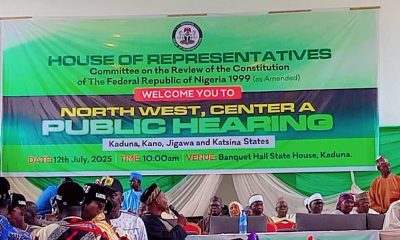National
Indigenous Participation of Pipeline Security: A Road Map For Environmental Protection and Economic Empowerment

By Tiemo.B.Pumokumo
The recent agitation from certain groups and individuals against the security and protection of oil and gas production facilities by indigenous people of the Niger Delta region, particularly Tantita Security Company, has sparked debate and raised valid concerns. However, considering the environmental destruction and economic burdens faced by the affected rural communities, it is crucial that until a consensus is reached on true federalism and resource management in Nigeria, the security and surveillance contracts should remain in the capable hands of Niger Delta indigenes. This is necessary due to the inability of the government and multinational oil companies to adequately secure the production facilities from vandalism and the crude methods of oil exploitation that have devastated the region.
The Niger Delta region has been the victim of severe environmental destruction resulting from inadequate protection of oil facilities. The affected rural communities have tragically shouldered the burden of this destruction, experiencing dire social and economic consequences. It is paramount to acknowledge the urgent need for improved security measures that can safeguard their lands, waters, and livelihoods from further devastation.
The Tantita Security Company, among others, has proven capacity and commendable competence in halting the activities of powerful economic saboteurs, highlighted by its commitment to protecting the fragile ecosystem of the region. However, it is disheartening to learn that these security contracts are significantly underpaid and receive minimal funding. This lack of appropriate financial support exposes a concerning undervaluation of the crucial role played by economic security in the region. Such meager funding can be seen as a deliberate ploy to undermine the indigenous citizens and turn them against the security contractors.
To rectify this disparity, it is imperative that the Nigerian government recognizes the value of economic security and invests sufficient resources to adequately compensate and support the indigenous security contractors. By doing so, the government can demonstrate a genuine commitment to protecting the Niger Delta’s oil and gas production facilities while empowering its indigenous communities.
While acknowledging the call for true federalism and resource control, it is important to stress that advocating for indigenous control of oil security does not seek to exclude or marginalize other groups. Instead, it recognizes the valuable local knowledge and vested interest that the indigenes possess in safeguarding their environment. Empowering indigenous communities with these security responsibilities will foster a sense of ownership and accountability, leading to improved environmental protection and sustainable practices.
In conclusion, until a consensus is achieved on true federalism and resource management among all ethnic nationalities in Nigeria, it is essential that the security and surveillance contracts for oil and gas production facilities remain in the capable hands of Niger Delta indigenes. These communities have endured significant environmental devastation and economic burdens due to inadequate protection measures. Moreover, the Nigerian government must ensure fair compensation and adequate funding for indigenous security contractors like the Tantita Security Company, to underscore the value of economic security in the region.
The ultimate goal should be to strive for true federalism and comprehensive resource control. By working towards a fair and sustainable approach to oil facility protection in the Niger Delta, we can create a future that prioritizes the environmental well-being and economic empowerment of all Nigerians.
By Tiemo.B.Pumokumo
Writes from Egbema kingdom,Warri North local government area of Delta State.













